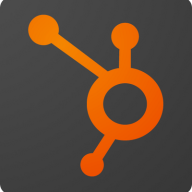

Salesforce Sales Cloud and HubSpot CRM are leading competitors in the CRM industry. While Salesforce is known for its extensive customization and integration capabilities, HubSpot stands out for its intuitive interface and strong marketing features.
Features: Salesforce Sales Cloud provides robust CRM tracking, customizable processes, and various integration tools. Users can tailor workflows and access a vast range of apps on its platform. HubSpot CRM offers a user-friendly interface, strong marketing capabilities, and easy onboarding, focusing on straightforwardness rather than advanced customization.
Room for Improvement: Salesforce Sales Cloud is often cited for complexity, a steep learning curve, and high costs, especially impactful for smaller businesses. Improved integration capabilities would enhance its usability. HubSpot CRM could benefit from enhanced integration capabilities and greater customizability, with some limitations depending on subscription levels.
Ease of Deployment and Customer Service: Both solutions primarily use public cloud deployment; however, Salesforce also offers more on-premises options. Salesforce's technical support varies in responsiveness based on subscription type, with premium support receiving positive feedback. HubSpot CRM is easier to implement and generally well-regarded for its customer service, though advanced support options may come at an extra cost.
Pricing and ROI: Salesforce involves higher licensing and setup costs, often justified by its comprehensive capabilities, making it more suitable for larger enterprises. In contrast, HubSpot CRM is a more affordable option, particularly appealing for smaller organizations, though it doesn't match Salesforce's depth. Both solutions promise ROI through improved data visibility and efficiency.
Salesforce Sales Cloud is a fantastic tool but requires disciplined data entry by sales personnel and operations teams to maintain data quality.
There is always an account rep that's available, and there is a technical account rep that is available for every account.
Part of it is different language use, and while that's okay, it wasn't immediately evident where to find help, verify, or submit a question and get responses.
HubSpot's customer service is excellent and fast.
Support requires a subscription and when taken, the service is pretty nice.
Handling around 100 to 150 users is fine.
There are a lot of enterprises using it, however, even as a GTM for HubSpot, their target market is predominantly SMB.
Salesforce is highly scalable and operates efficiently.
It scales effortlessly with user growth.
Salesforce Sales Cloud is very stable.
I have not experienced any degradation in Salesforce's performance.
A package covering everything in a particular area without requiring the entire purchase would be excellent.
A better CRM can be achieved by providing more customization features.
They are not at the pace or effectiveness of AgentForce by Salesforce.
With today's generative AI capabilities like ChatGPT, it should be possible to directly communicate with the software rather than navigating through the entire system manually.
Compared to AWS, it is slower, which could be a hindrance.
Without negotiation, costs can become expensive.
HubSpot stands out for its ease of use, especially with sequence creation compared to other CRM solutions.
The feature that I find valuable is the customer 360-degree view and the marketing automation.
The most valuable feature for me is when I encounter a company or a person, I can drop in their URL, and it pre-populates various details like address information and other contacts they might have.
Its easy-to-navigate interface aids in delivering clear vision and organization, especially for sales and business management.
The Einstein Analytics and the inbuilt reporting are very useful for keeping track of pipeline movement.


HubSpot CRM is a comprehensive customer relationship management software that helps businesses manage their sales, marketing, and customer service activities. It offers a wide range of features, including contact management, email tracking, deal tracking, and task management.
With its intuitive interface and easy-to-use tools, HubSpot CRM allows users to streamline their sales processes, track customer interactions, and improve overall productivity. It also integrates seamlessly with other HubSpot products, such as marketing automation and customer service, providing a complete solution for businesses of all sizes.
Whether you're a small startup or a large enterprise, HubSpot CRM can help you organize and grow your customer relationships.
Salesforce Sales Cloud is a comprehensive CRM platform designed for efficient lead management, sales forecasting, and customer engagement, offering extensive customization and cloud-based accessibility.
Aimed at enhancing business efficiency, Salesforce Sales Cloud supports core business processes like CRM, lead and opportunity management, sales forecasting, and customer engagement. Its robust integration capabilities allow seamless connectivity with ERP systems and various applications. The platform offers pipeline tracking, process automation, and advanced sales cycle management. Users appreciate its cloud-based accessibility, allowing teams to operate remotely and manage sales operations effectively. However, users highlight concerns about its complexity, cost, and the need for a more intuitive interface.
What features does Salesforce Sales Cloud offer?Salesforce Sales Cloud is widely implemented across industries such as finance, healthcare, and retail, supporting sales teams in tracking and managing sales operations. Its use extends to reporting, collaboration, and enhancing client interactions, allowing companies to tailor Salesforce to meet industry-specific requirements efficiently.
We monitor all CRM reviews to prevent fraudulent reviews and keep review quality high. We do not post reviews by company employees or direct competitors. We validate each review for authenticity via cross-reference with LinkedIn, and personal follow-up with the reviewer when necessary.